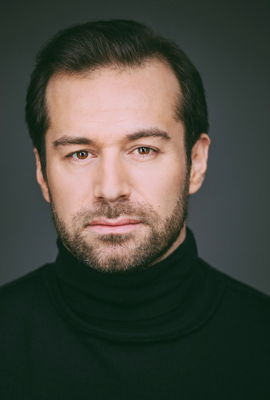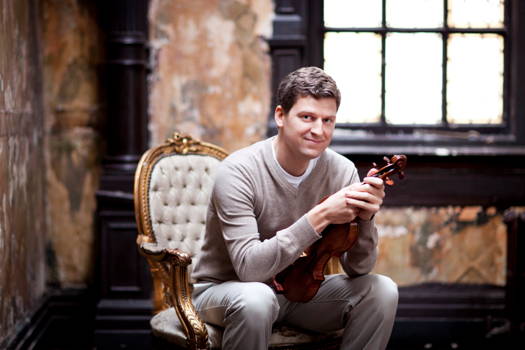- Carl Maria von Weber
- Joan Trimble
- Ruth Hesse
- Ivan Karabyts
- Mykhaylo Chemberzhi
- mandolin
- Vladimir Golschmann
- Elvis Presley of Russian classical music
 FEEDBACK: She said WHAT? Read what people think about our Classical Music Daily features, and have your say!
FEEDBACK: She said WHAT? Read what people think about our Classical Music Daily features, and have your say!
 DISCUSSION: What is a work? John Dante Prevedini leads a discussion about The performing artist as co-creator, including contributions from Halida Dinova, Yekaterina Lebedeva, Béla Hartmann, David Arditti and Stephen Francis Vasta.
DISCUSSION: What is a work? John Dante Prevedini leads a discussion about The performing artist as co-creator, including contributions from Halida Dinova, Yekaterina Lebedeva, Béla Hartmann, David Arditti and Stephen Francis Vasta.
He'll Be Back
Fabien Gabel conducts the Hallé Orchestra,
impressing MIKE WHEELER
Stepping in to replace the indisposed Mark Elder - Royal Concert Hall, Nottingham, UK, 15 October 2019 - French conductor Fabien Gabel has obviously established a rapport with the Hallé Orchestra. He substituted Tchaikovsky's Fourth Symphony for the originally-scheduled Elgar First, which no doubt he would have had to learn specially. So kudos to him for taking on a real English rarity, Finzi's ten-minute 'elegy for orchestra' The Fall of the Leaf, which is unlikely to have crossed his path before, either.

Fabien Gabel. Photo © Stéphane Bourgeois
The Hallé Orchestra gave the first performance of this in 1957, just over a year after Finzi's death, and recorded it with Elder a while back, so it's part of their history. With appropriate hints of unease - particularly in the nagging undertow of the many passages of off-the-beat writing - and poignancy - the understated ache in the muted horns at the end - it was a thoroughly idiomatic performance. But did I also pick up something of a French quality in the solo oboe tune near the beginning? That may well have been player Stéphane Rancourt's doing just as much as Gabel's, of course. Whatever, it fitted readily into the overall picture.
Bringing that same just-discovered freshness to often-played repertoire like Bruch's Violin Concerto No 1 and the Tchaikovsky must take some doing, but these performances took nothing for granted. Soloist James Ehnes launched the Bruch with quiet authority on his gutsy-sounding open G string, and continued with the same focused tone, riding the orchestra's fiery contribution easily but without grandstanding. After the second movement, played with intense concentration all round in the quiet moments, the finale got as spicy a reading as I've heard, full of gypsy fire, and with pizzicato orchestral strings giving a good kick to the rhythm. Ehnes's encore was a poised account of the Largo third movement from J S Bach's Sonata for solo violin No 3.

James Ehnes. Photo © 2012 Benjamin Ealovega
The Tchaikovsky, too, got a thoroughly committed reading, from the aptly strident fanfare at the start, the turmoil of the main section echoing the seething emotions of Francesca da Rimini, and timpani beats like sinister footsteps.
In the second movement, orchestra and conductor went for gentle wistfulness rather than nostalgic angst. The opening oboe solo - Rancourt again - was tenderly expressive, and in the quicker middle section the clarinet and bassoon ensemble sounded particularly pungent. The pizzicato strings in the third movement had an airiness verging on the Mendelssohnian to begin with, but then acquired something of an obsessive edge in the reprise after the middle section. The woodwind were playful, the brass crisp, and the ending was simply allowed to evaporate without calling attention to itself.
The finale was heady, with an appropriate manic touch. I'm still in two minds as to what exactly happens when the first movement fanfare gatecrashes the party, and I guess much depends on individual performances. Here the aftermath seemed more than ever like Tchaikovsky trying to brush it aside as an unwarranted intrusion, rather than the failure of nerve he has sometimes been castigated for.
By the end of the evening Fabien Gabel had clearly made an impact with the Nottingham audience as well as the orchestra. As I met a colleague on the way out, we agreed: 'He'll be back'.
Copyright © 26 October 2019
Mike Wheeler,
Derby UK



